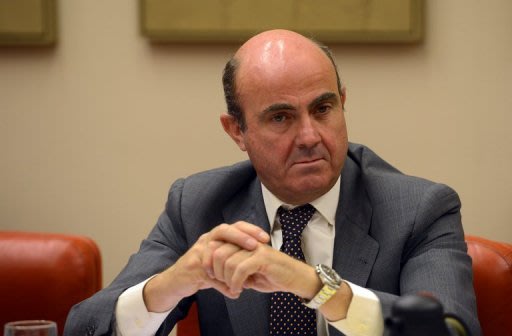DUBAI (Reuters) - Dhari al-Fadli, a patient being treated at a diabetes clinic in Kuwait, is a victim of the dark side of his country's economic boom.
After his weight hit a peak of 123 kg (271 pounds), Fadli developed such serious diabetes that he had to inject himself with insulin before every meal. Helped by the insertion of a gastric balloon into his stomach to reduce hunger, he has now lost enough weight to stop the injections, but still has to take diabetic medication.
"We're all overweight in my family...We have a saying that if you don't have diabetes, you're not a Kuwaiti," said Fadli, a 49-year-old father of five.
In fact, more than one in five Kuwaitis suffer from the disease.
Oil wealth has given Kuwait and nearby countries in the Gulf some of the highest per capita incomes in the world. But it has also created lifestyles - overeating, high-sugar diets, cushy jobs and heavy reliance on automobiles for transport - that are leading to an explosion of diabetes in the region, experts say.
Five of the 10 countries where diabetes is most prevalent are located in the six-nation Gulf Cooperation Council, according to the International Diabetes Federation (IDF), an umbrella organisation of more than 200 national associations.
Kuwait is No. 3 while Qatar is sixth, Saudi Arabia seventh, Bahrain eighth and the United Arab Emirates No. 10. The rest of the top 10 are Pacific island nations with much smaller populations, apart from Lebanon which comes in fifth.
A staggering 21.1 percent of people in Kuwait are diabetes sufferers while prevalence rates are around 20 percent in other GCC countries, IDF figures show. In the United States, the rate is 9.6 percent; worldwide, it is 8.5 percent.
The problem is so widespread in Kuwait, said Abdulmuhsen al-Shammari, an endocrinologist working at Mubarak al-Kabeer Hospital in the country, that "it is now normal for half a dinner party to be diabetic and for them to ask for each other's medication after they eat".
LIFESTYLES
Genetic factors apparently contribute to the Gulf's high incidence of diabetes, an incurable disease in which the body has difficulty absorbing sugars and which is closely associated with obesity, scientists say. It can lead to cardiovascular problems, blindness, strokes and kidney disease.
"Research suggests that people (in the Gulf) have a lower set-point at which their body-mass index levels trigger the onset of diabetes," said Maha Taysir, endocrinologist at the Imperial College London Diabetes Clinic (ICLDC) in Abu Dhabi.
However, even expatriates living in the Gulf have a higher incidence of diabetes than they do in their home countries, Taysir said. This suggests lifestyles are a major reason for the region's problem.
Just two or three generations ago, many inhabitants of region made their living through strenuous work such as fishing, goat-herding and pearl-diving.
The development of the Gulf's oil riches changed lifestyles drastically, luring tens of thousands of people into comfortable jobs at lavishly funded state enterprises, or allowing them to live on ample unemployment benefits. Physically tough jobs in the GCC, such as construction and oil field operation, are almost entirely done by millions of foreign workers.
Gulf rulers responded to last year's political unrest in the Middle East by increasing welfare benefits for their citizens to buy social peace, which some officials in the Gulf have conceded privately risks further reducing the pressure on people to work.
"Exercise is the single most important factor for reducing diabetes ... but it takes a lot of work to get patients here to follow a lifestyle they really don't want to," Taysir said.
Some Gulf residents believe the first Gulf War against Saddam Hussein in 1990-1991 may have contributed indirectly to the spread of obesity by fostering a junk food culture. Fast food outlets blossomed in Kuwait, Saudi Arabia and other countries where thousands of U.S. troops were stationed, and remained part of daily life after the troops withdrew.
"The lifestyle, the luxury we live in, the lack of activity and our fatty junk food culture are all contributing factors... Food is delivered, kids play sitting down at their computers... even physical education is a written exam," said Fadli.
COSTS
Even for the wealthy Gulf oil exporters, the financial costs of diabetes are unwelcome. Medical care is heavily subsidised, and the UAE spends $272 million on diabetes treatment annually. A study by Abu Dhabi health authority estimated the overall social costs of the disease at about $1.9 billion.
"Now people are getting in to the later stage of the disease where it really begins to cost money, which is why governments are now pushing for prevention and early intervention," said Andrew Miles, Gulf regional director at global medical products and services supplier MSD.
Beyond the immediate financial costs, diabetes may threaten Gulf countries' long-term plans for development. Aware that their dependence on oil leaves them vulnerable to global markets, the countries are trying to diversify their economies and bring more of their people into the workforce.
"How can you develop your economy if one-fifth of your people are sick?" Miles said.
Governments are reacting to the problem by launching public awareness campaigns to encourage healthy diets, exercise and early medical testing. Since 2007, the ICLDC has worked on a national campaign in the UAE which includes a series of public talks, free blood tests, an annual walkathon and arranging sports activities in workplaces.
In Kuwait, Qatar, Saudi Arabia and the UAE, MSD has worked with authorities to introduce a training programme for nurses on counseling diabetics, a diabetic cookbook, and a Ramadan iPhone application to advise diabetics who fast during the Muslim holy month.
But it may take many years to change the culture which is fostering diabetes, experts acknowledge.
"You need greater coordination between the different government ministries so that the road traffic authority is thinking about pavements to facilitate walking at the same time as the health authorities are thinking about encouraging activity to decrease obesity and diabetes," said Miles.
"There is more awareness of the need to coordinate between the various ministries and planners, but this will undoubtedly take some time to come into effect... In the meantime, we need as much exposure and awareness of this disease as possible."
(Additional reporting by Tony Faddoul and Sylvia Westall in Kuwait; Editing by Andrew Torchia and Sonya Hepinstall)






 9:34 AM
9:34 AM
 specialshowtoday
specialshowtoday


 Bankia is one of four Spanish banks to get the green light for a eurozone bailout
Bankia is one of four Spanish banks to get the green light for a eurozone bailout


